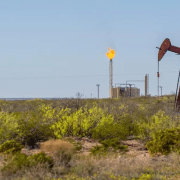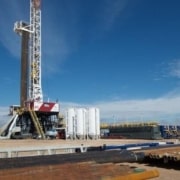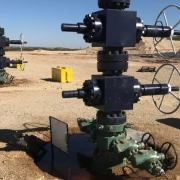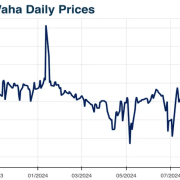Leasing vs. owning oil and gas rights: Which is better?
The oil and gas industry is one of the most lucrative sectors in the world, attracting both seasoned investors and landowners with valuable subsurface resources. However, when it comes to oil and gas rights, individuals and entities face a significant decision: should they lease or own these rights? In this comprehensive guide, we will explore the differences between leasing and owning oil and gas rights, the advantages and drawbacks of each approach, the legal and financial aspects, and considerations for landowners and investors. By understanding the nuances of leasing and owning, you can make an informed decision aligned with your goals in the oil and gas industry.
Understanding Oil and Gas Rights
Oil and gas rights, often referred to as mineral rights, are property rights that grant ownership over valuable subsurface resources. These resources can include oil, natural gas, coal, metals, and various minerals. Mineral rights are typically separate from surface rights. Meaning one party owns the surface property while another owns the subsurface minerals.
Leasing Oil and Gas Rights
Leasing oil and gas rights involves granting a third party (usually an energy company) the exclusive right to extract, produce, and sell valuable resources from beneath your property. The owner of the mineral rights receives royalty payments, lease bonus payments, or a combination of both, depending on the terms negotiated.
Owning Oil and Gas Rights
Owning oil and gas rights means you retain exclusive control and ownership of the subsurface resources on your property. You have the right to extract, produce, and sell the resources directly, enter into leases with energy companies, or participate directly in the drilling and extraction processes.
Advantages of Leasing
Leasing oil and gas rights offers several advantages:
- Passive Income: Lease holders receive royalty payments without the responsibility of managing the extraction process.
- Reduced Risk: Leasing transfers the operational and financial risks to the energy company. Which must adhere to environmental regulations and manage expenses.
- Immediate Payment: Lease bonus payments provide an immediate financial benefit to the mineral rights owner.
- Diversification: Leasing allows landowners to diversify their income without investing substantial capital.
Advantages of Owning
Owning oil and gas rights provides its own set of advantages:
- Full Control: Owners have complete control over the extraction and production process, which can be advantageous in terms of strategy and timing.
- Revenue Potential: Owners may potentially earn higher revenue if they can effectively manage and optimize the extraction process.
- Ownership of All Revenue Streams: Owners retain all revenue streams, including royalty payments and the proceeds from the sale of extracted resources.
- Asset Value: Owning mineral rights adds to the overall value of the property, potentially increasing its resale value.
Drawbacks of Leasing
Leasing oil and gas rights comes with some potential drawbacks:
- Limited Control: Lease holders relinquish control over the extraction process, which means they must trust the lessee’s expertise and integrity.
- Long-Term Gains: Royalty payments may provide a steady income, but lease agreements often span several years, delaying the realization of significant gains.
- Market Volatility: Royalty payments can fluctuate with market conditions, affecting the overall income.
Drawbacks of Owning
Owning oil and gas rights also has its drawbacks:
- Operational Responsibilities: Owners bear the full burden of managing the extraction process, including the costs and potential environmental and regulatory issues.
- Financial Risk: The owner is exposed to financial risk, which includes operational expenses, commodity price fluctuations, and potential resource depletion.
- Environmental and Regulatory Compliance: Oil and gas operations are subject to strict environmental regulations, which the owner must adhere to.
Legal and Financial Considerations
When making the decision to lease or own oil and gas rights, consider the following legal and financial aspects:
- Legal Expertise: Consult with legal professionals who specialize in mineral rights to navigate the legal intricacies.
- Due Diligence: Conduct thorough research and due diligence regarding the geological potential of your property and the reputation and financial stability of the lessee or operator.
- Negotiation Skills: Hone your negotiation skills to secure favorable terms and agreements when leasing or selling your mineral rights.
Tax Implications
Oil and gas rights transactions have tax implications, including capital gains taxes and potential deductions. Consult a tax advisor to understand the tax treatment and strategies for minimizing tax liability.
Making the Decision: Lease or Own?
The choice between leasing and owning oil and gas rights. It depends on your financial goals, risk tolerance, and the specifics of your property. Consider factors like your level of expertise, willingness to manage operations, and the potential for long-term gains. Each approach has its merits and challenges, so make your decision based on your unique circumstances.
Deciding whether to lease or own oil and gas rights is a critical decision for landowners and investors in the energy sector. Each approach has its advantages and drawbacks, so it’s essential to carefully evaluate your goals, risk tolerance, and property specifics. By understanding the legal, financial, and tax implications of both options. You can make an informed choice that aligns with your long-term objectives in the oil and gas industry.
If you have further questions related to the topic, feel free to reach out to us here.












Leave a Reply
Want to join the discussion?Feel free to contribute!